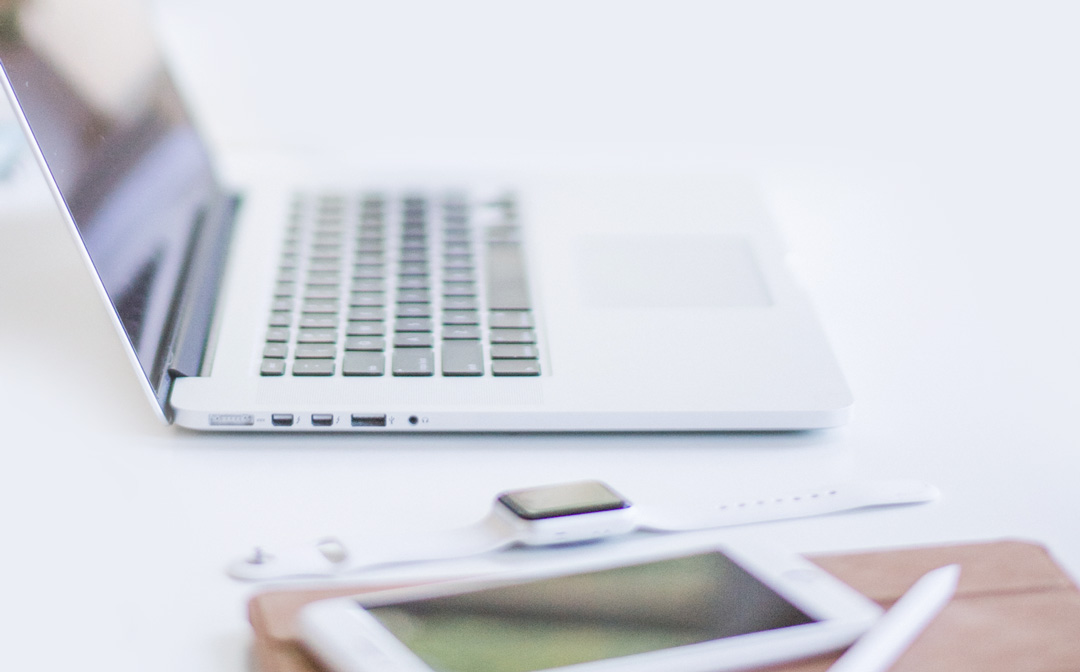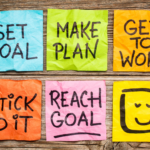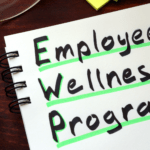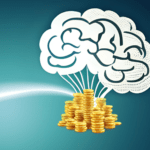
How To Be Productive – Dramatically Increase Productivity with Way Less Stress
Learn how to be productive by letting go of control. Use this 8-Step Roadmap as your guide for powerful, widespread benefits.

We micromanage because we often believe this is the only way we will realize our goals. But in reality, this desire to control every detail works against us causing cognitive overload, stress, and eventually burnout. Here, I’ll show you 8 steps on how to be productive while releasing control. The result is healthy productivity and decreased stress.
Raise a hand if you are part of the hyper-control club. Let me break that down: Do you feel the need to micromanage the little details of life? Does it frustrate you when you can’t? Do you believe it’s innate to who you are as an overachiever or Type A personality? Are you convinced this is the path of success and accomplishment? Or that this level of control comes hand-in-hand with being driven? No judgment here. My hand is up too – or at least it was for a very long time.
How to be productive and break free of your old molds
#1 – See the desire to control for the illusion that it is:
I talk about this with clients not only because I see them struggling, but because I’ve experienced it directly myself. A lot. For years, I did not see any way to release the reigns without failing. Because my roles as a clinician, lawyer, teacher, and trainer have always been about assisting others, I assumed being a controlling, perfectionist just came with the territory. Someone’s welfare was always on the line. If I relaxed or let up, I might make mistakes and someone else would suffer.
I reasoned then that I had to micromanage. Everything. Extreme organization and meticulous planning were a given. Being prepared in my book also meant predetermining all outcomes (as if I were Sherlock Holmes) and then, ensuring everything unfolded according to plan. Of course, no one can truly control an outcome. So I just worked on overdrive, all the time, believing the illusion that I could. Sound familiar?
How? I’ll show you. Let’s reframe the discussion to capture the alternatives imagined:
The only thing to do is to accept that fear is part of the natural order of human life and attempt to work through it. That requires release, not control. Control is the illusion. Release is the acceptance of truth.
I arrived here to the path of release, through a culmination of my professional research, the specific trials of my personal life, and my meditative practice. Once I began to experience the wonders of this change, I researched it deeper and created methods that I use to help others in my habit coaching. Let’s go deeper.
#2 – Accept that micromanaging starts from your generalized fear of the unknown:
Micromanaging is a way of coping with fear and the unfamiliar, similar to overeating, porn, or drugs. It’s human nature to need security. Security involves knowing. This is heightened because our brain evolved in-part based on pattern recognition. The future and its inherent unknowns often make us insecure and fearful. Depending on our risk aversion, this leads to implementing control everywhere we can.
It becomes an unhealthy way of coping with that fear just like other addiction. However, since micromanagement doesn’t come with the severe physiological or psychological profiles of other addictions, it doesn’t appear as categorically unhealthy. This is what adds to its danger — it runs rampant and goes unchecked for years. And yes, while it doesn’t give us the dopamine highs and crashes of other addictions do, it does have its own neurotransmitter signatures. We might be addicted to the stress chemicals it creates (yes, this is possible — adrenaline rush).
Other times, we view our control as a personality trait. Many of us even credit our success to it. To the contrary, you succeeded in spite of micromanaging. Remember: planning and organizing isn’t the problem. In fact, those are great skills. It’s the hyper vigilance, the need to monitor and fret about details. It’s the worry that things will go astray, and the takeaway that if it does — you failed. None of that ever helped.
#3 – Wake up with a sense of “being” not “doing”
Instead of waking up and automatically thinking about everything you have to do, just spend five minutes existing.
Don’t check your phone, contemplate meetings, or consider problems.
Just uncork your body with a gentle stretch. Get into your senses. Enjoy your tea. Relax! You’re a human, not a robot.

#4 – Be proactive in planning and not reactive to what pops up
Try not to approach any of this from a worry mindset. Don’t anticipate problems because you’re undercutting the chances of your own success. Think of it like shorting the stock of a company you own.
#5 – Get specific about the imagined “or else”
This is the specific fear you have imagined in addition to the generalized fear of the unknown.
Remember my example above and extreme outcomes I imagined would happen if released the micromanagement lifestyle? It’s time to get specific about what you think will really happen. Try to vary the phrasing here so the your brain receives the message multiple ways and in your own inner voice.
“I must manage every aspect of Task A or else ____ ” Or else what? Is the world going to spin in the opposite direction? Is your life going to crumble brick by brick?
No. So what might happen? Unless you’re a neurosurgeon, there’s usually a chance for revision. Worst case, you’ll make a mistake and you’ll fix it.
The reality is even with hyper control, you may still make err. In fact, mental fatigue will increase those chances. Also, re: micromanaging has nothing to do with your actual skills. You’re good at what you do! Finally, if things change, you’ll adapt. Even if you hate surprises, you’re cultivating resourcefulness and that’s a high-value skill.
#6- Create a positive mantra for uncertainty and change
“Change is the nature of life. I find it refreshing and I know that I can handle anything that comes my way!”
“I can’t predict what happens outside of me, but I’m confident in my ability to respond.”
Play with this. See what works for you. Then repeat this often throughout the day. Start it in your mornings and it’ll charge you up. Every time, you feel the controlling tendencies creep up, focus on it right away. Say it out loud to jolt you out of the overwhelm. Repeat it silently for at least a minute.
#7 – Celebrate your accomplishments every day
Man oh man, this is hard for overachievers. We barely register accomplishment.
Many of us even do this with our major milestones. We treat them like just another item checked off the to-do list. Even if we invest loads of time and energy to make a goal happen, when it does we act like it’s no big deal. Only when it doesn’t — the sky is falling.
This is not great for the brain. If you don’t acknowledge all the cool things you do, your mental environment is all stress, expectations, and sprinkles of disappointment. Imagine, your mind feels like a mistreated factory worker: unrewarded, undervalued, and subjected to awful working conditions.
Also, we can try not to conflate our inability to celebrate with humility. This isn’t about sharing or posting something with others. It’s just about you celebrating you. Inside you.
We should do this every day for one thing. Even if you didn’t do what you set out to do, there was something today that deserved recognition. Jot it down if you’re able. Take the time to internalize it.
#8 – Think in growth, amend plans often
Learn from the day that just happened. If you don’t have the time to journal, you can incorporate one or two things you noticed into your priorities & plans for the next day. Perhaps, you were surprised about the complexity of a problem or learned a task that required additional research. Great, make sure to tailor in what’s next with this info.
This is important so that you don’t set yourself up for a perceived fail. It also helps you become more realistic with your expectations for yourself. Plus, the more you practice altering plans daily, the easier it becomes. You’re creating a new skillset — adaptability — and gaining confidence from seeing how comfortable you are doing it.
How to be productive – The benefits soon after implementing:
Do you see how peaceful it will feel to work without the panic and how productive you can still be? Here are some other key benefits when you release control:
Capable — You can tackle anything, no matter how it changes because now you have loads of practice. You’re relaxed because you know you can be.
Energized — Once you get going, you’ll save a ton of energy. Being relaxed is moving in flow. You’re not wasting thoughts and emotions on predicting worst case, unlikely scenarios. Think about how resistance exercises require more energy to carry out. You don’t want resistant mental activity that you have to overcome just to do your work.
In Control — This one’s funny but it’s so true. You could never control those external circumstances and that led to major overwhelm. Now that you’ve accepted this and focused instead on building an adaptive skillset, you know you can influence the most important element — You — no matter the circumstance.
Joy — This one is incredible when you notice it. The joy is in knowing that you can “do” while feeling your state of being. Does that make sense? You are cultivating your fundamental humanness. You are learning to equate worth with existing, not accomplishing. You feel a sense of wholeness as you.
Relief — This one is a given because of all the discarded stress. It’s a gift to your body. From your blood pressure to your digestion, everything will become more aligned. Even if you’re too young to experience any present health issues, know that you’re mitigating what usually arises at those chronic stress levels.
How to be productive – CREATe MOMENTUM WITH your PRACTICE:
There are many more benefits when we release control. Once you implement these steps, please share your experience below. It inspires others. Remember, right there is the key to making it all work. Your implementation — your action. Once you get going, you’ll feel no desire to turn back.
Remember, right there is the key to making it all work. Your implementation — your action. Once you get going, your momentum will soon propel you forward. Each step and each day will be easier and smoother than the one before it.
Next steps to consider
Experience the extraordinary with our groundbreaking neuroperformance programs. Over the course of just 12 weeks, witness a remarkable transformation that permeates every facet of your life: career, daily performance, health, wellness, cognitive function, habits, relationships, energy, and personal and spiritual growth. What sets us apart is our unwavering focus on the brain as the ultimate catalyst for change.
Unleash your full potential as we guide you through a journey of learning, self-discovery, and profound metamorphosis into your highest self. To witness the magic firsthand, explore our home-page brimming with captivating videos that promise to inspire and revolutionize your life. Take the first step today and embark on the path to unlocking your true potential. Explore our programs now.
Join our Alive Mindful Optimist Newsletter
Receive our Modern Day Stress Warrior Series & Mindfulness handouts as our gift to you.










